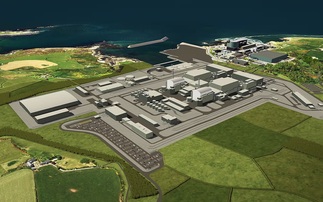Memorandum of Understanding aims to improve R&D collaboration, boost skills base, and harmonise regulation
The UK and Canadian governments have this week signed a new partnership designed accelerate efforts to develop commercial scale nuclear fusion projects.
The new Memorandum of Understanding (MoU) was signed by the UK's Energy Security and Net Zero Secretary, Claire Coutinho, and Canadian Minister of Energy and Natural Resources, Jonathan Wilkinson, on the sidelines of the International Energy Agency's (IEA) Ministerial meeting in Paris yesterday.
The agreement was accompanied by a collaboration framework agreement between the United Kingdom Atomic Energy Authority (UKAEA) and the Canadian Nuclear Laboratories (CNL), which will see the two agencies partner on the development of technologies for the management of tritium, a fusion energy fuel.
The two governments said the MoU would enhance collaboration on key focus areas, including research and development, regulatory harmonisation, and skills and workforce development.
"A more diverse and secure energy mix will bring down bills in the long term and that's why we are working closely with our European allies to end dependency on Russian gas," said Coutinho. "The UK is also leading the world in fusion research, which could provide a near limitless supply of clean energy. This landmark partnership with Canada will strengthen co-operation between our countries and support our record-breaking British research - bringing us closer to making fusion a reality."
The partnership follows the UK government's £300m investment in support of plans to become the first country in Europe outside of Russia to launch a high-tech HALEU nuclear fuel programme, which aims to further curb European reliance on Russian nuclear fuel exports.
Stephen Wheeler, executive director at UKAEA, said the new partnership would boost efforts to secure supplies of Tritium for use in nuclear fusion projects.
"Tritium is a key fuel for fusion energy, and developing a commercial scale fuel cycle for the handling and reprocessing of tritium is vital to the delivery of fusion as a clean energy source," he explained. "This collaboration between UKAEA and CNL brings together two of the largest and most experienced tritium research and operational teams in order to accelerate the development of new technologies for tritium processing."
The government said both UKAEA and CNL facilities will also be used to advance tritium technologies required for fusion applications, including the design of tritium processing plants, tritium-compatible materials development, tritium breeder blanket technologies, tritium decontamination, and analytical equipment and the modelling of tritium handling processes.
The UK-Canada collaboration builds on the announcement of the UK-US Strategic Partnership on Fusion Energy in November 2023 and will support the UK's £650m Fusion Futures programme.
It also aims to establish a framework in which the two agencies can conduct joint research projects, facilitate personnel secondments, share expertise for consultancy services, and work together to provide services to the fusion industry.
Keep up to date with all the latest green business news by signing up to the free Daily and Weekly BusinessGreen Newsletters.











